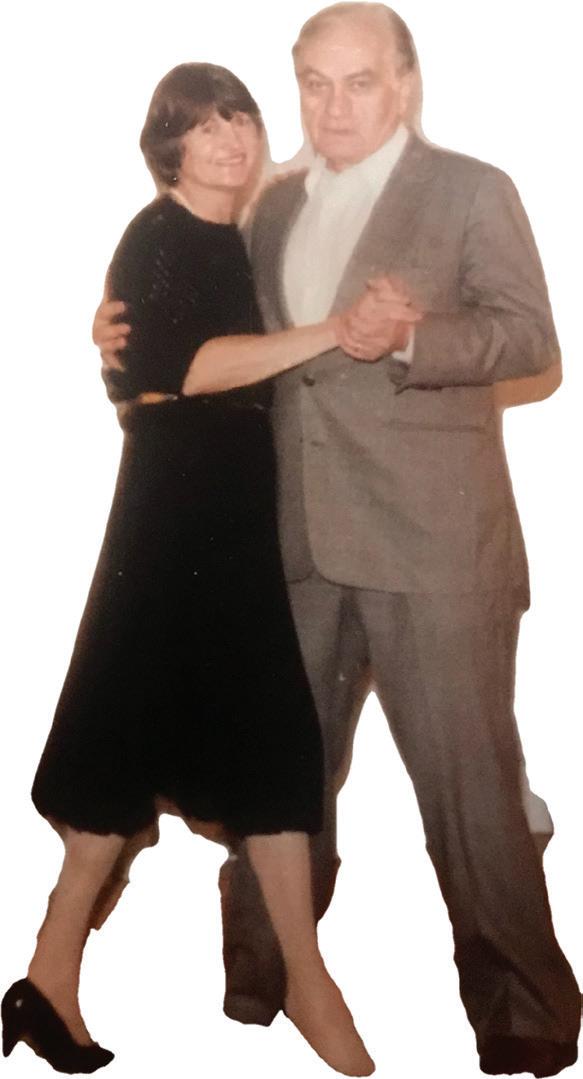
2 minute read
POLITICS : Why I am writing-in
One daughter visited New York in 79, and overstayed her visa, applying for political asylum. After her husband died, Miriam left in 83, with her other two daughters, and sought asylum while staying in a shelter for refugees
Their house was sold at a discount to an American priest, who promised to bring them back them their money later (and mostly did). They snuck out through Slovenia. The train was
Advertisement
Liz Galvin
Merry Band of Contributors
Matt Graber
Howard Graubard
Nino Pantano
Samantha Goldfarb
FOR EDITORIAL, ADVERTISING OR EMPLOYMENT INQUIRIES, email gbrook@pipeline.com
The Red Hook Star-Revue is published every month.
Founded June 2010 by George Fiala and Frank Galeano

Once time, just before my son was leaving for his summer of Reform Jewish recreation in the Berkshires, he asked “Bubbe, did you ever go to camp?” and she said, “no we had an attic.”
Later she told me ‘they called it an attic; the Franks had a attic; we had a little space.” Mostly she occupied herself by keeping her only companion, a younger cousin, from crying. Most of her family was killed (“my sister was 11, she never saw 12”).
As a bar mitzvah project, my son did visits with Holocaust survivors; a gentleman we visited in Sheepshead Bay proved more responsive in Polish and Yiddish than English and my wife decided to bring Miriam on the next visit.
“Where were you?” the gentleman, a former resident of Auschwitz asked. “I was in hiding,” said Miriam. “Hiding?” said the man, “you had it good”
“Good,” said Miriam, “at least in the camp you got to see people; you had a social life.”
After liberation, some Jews left Poland as soon as they could; like many other Jews, her cousin eventually left for Israel; others returned to their towns, where the Poles who had taken over
Hershel “I have the keys to the cemetery; who will let the Bobov in when they come to mourn at the Rebbe’s grave?”
Communism left opportunities for those so inclined; Hershel, the town’s only capitalist, opened a shoe store (known as “The Jew Store”) but mostly, between bouts of prison, he ran the local black market.
Once, they interviewed Miriam on television to counter the notion that Poles were anti-Semites. They asked her if it was true that Poles had saved her life. She said “it Is true that Poles saved my life; it is also true that they informed upon my mother.”
Six months later, they finally arrived in New York. Her son and a grandchild arrived years later.
After a bout with breast cancer, Miriam sat at home and leaned English watching soap operas and becoming a voracious reader. She eventually got a job in a Chasidic owned Williamsburg drug store, where most of her conversations took place in Yiddish. She worked there until she was 89. Her family is like something preserved only in amber, a fantasy version of what postwar Eastern European Jewish intelligentsia would be like, if only it had been allowed to exist. I call them “The Rootless Cosmopolitans.”
Almost exactly two months after 9/11, on her first date with a ne’er do well political operative, Miriam’s youngest daughter was told, “I have no money and I live over a funeral home.” She thought he was joking and she laughed.

She responded “My life’s ambition is to sit home all day and read Proust.” He thought she was joking, and he married her.
That he would be me.
Anyway, to Miriam’s distress, Trump won.
“Mr. Graubard, what are we going to do now?”










